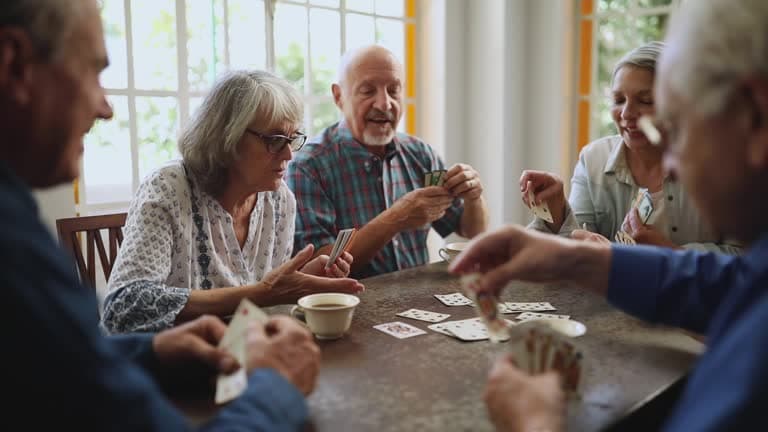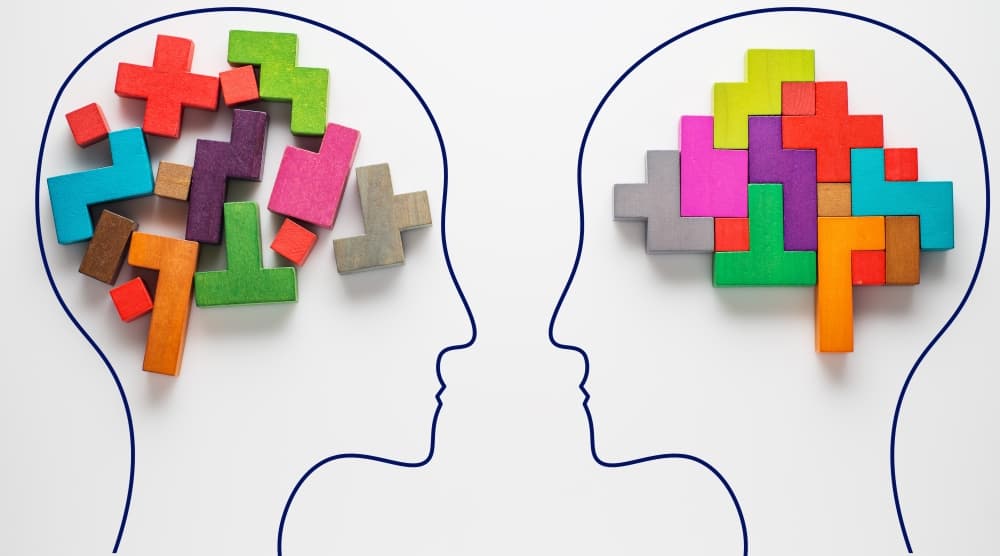
As people age, maintaining mental sharpness becomes just as important as staying physically active. While puzzles and solo brain games are useful, one of the most overlooked methods for keeping the mind engaged is social play. For older adults, games that combine interaction and strategy — like cards, board games, and even games found in non Gamstop casinos — offer more than just entertainment. They provide a valuable mental workout and a much-needed social connection that many people miss in later life.
Unlike passive activities, game-based socialising creates a setting where older adults are encouraged to think, plan, communicate, and respond. These actions stimulate different parts of the brain, helping to preserve memory, boost problem-solving skills, and improve mood. When done regularly, this type of engagement can contribute to a better quality of life and reduce the risk of cognitive decline.
Why Social Games Matter More with Age
Loneliness and isolation are two of the most common issues faced by older adults, particularly those who live alone or have limited mobility. These feelings are more than just unpleasant — they’re directly linked to slower brain function and increased risk of depression. Social games break that isolation. They bring people together, often on a regular basis, to talk, laugh, compete, and collaborate.
Older adults often experience a reduction in meaningful social interactions due to retirement, bereavement, or physical limitations. Without regular conversation and shared activity, cognitive function can begin to decline more quickly. Social games not only provide opportunities for communication but also give structure to social time, making it easier to build and maintain relationships.
Additionally, the encouragement to participate, remember rules, engage in light competition, and even negotiate or cooperate in team-based games promotes both social confidence and mental engagement. These are essential for preserving a sense of identity and self-worth, particularly in later years.
Games like bridge, dominoes, bingo, or poker require players to use memory, reasoning, and attention. These aren’t passive skills — they involve continuous mental effort. Over time, this kind of cognitive stimulation helps build mental resilience. Studies have shown that people who regularly participate in mentally challenging activities in a group setting are more likely to maintain sharp thinking and a better mood as they age.
How Games Activate the Brain
Different types of games engage different brain functions. Word games and trivia challenge language processing and recall. Chess and strategic card games like whist or rummy demand forward-thinking and adaptive planning. Matching games and pattern recognition tasks stimulate visual and spatial memory.

What makes games particularly effective for cognitive stimulation is the real-time nature of decision-making and interaction. In the case of older adults, this helps preserve neuroplasticity — the brain’s ability to form and maintain new connections. Games that involve multiple layers of thinking, such as remembering previous moves, anticipating an opponent’s next action, and responding socially to a comment or joke, push the brain to multitask and adapt.
Playing in groups also supports emotional regulation and verbal expression, helping players articulate thoughts clearly, interpret cues, and process feedback. These all contribute to better mental clarity, resilience, and adaptability, which are crucial for maintaining independence in later life.
Multiplayer games add even more complexity. The brain has to work through the mechanics of the game while interpreting the behaviour, speech, and facial expressions of others. This multitasking effect supports neuroplasticity — the brain’s ability to form new neural connections. For older adults, this is key to slowing the natural decline that can come with age. Mental agility, reaction time, short-term memory, and decision-making skills are all activated simultaneously, which helps reinforce mental sharpness through real-time application.
Emotional and Psychological Rewards
Social play does more than exercise the mind. It strengthens emotional bonds, builds self-esteem, and provides a sense of purpose. In many cases, the anticipation of regular game nights or club meetups gives older adults something to look forward to, improving overall mood and motivation.
Even low-stakes competition can add excitement to daily routines. Friendly rivalries during card games or team-based board games help reinforce interpersonal relationships and spark laughter. These experiences combat apathy, which is common among seniors who lack social stimulation.
Different types of games engage different brain functions. Word games and trivia challenge language processing and recall. Chess and strategic card games like whist or rummy demand forward-thinking and adaptive planning. Matching games and pattern recognition tasks stimulate visual and spatial memory.
Multiplayer games add even more complexity. The brain has to work through the mechanics of the game while interpreting the behaviour, speech, and facial expressions of others. This multitasking effect supports neuroplasticity — the brain’s ability to form new neural connections. For older adults, this is key to slowing the natural decline that can come with age. Mental agility, reaction time, short-term memory, and decision-making skills are all activated simultaneously, which helps reinforce mental sharpness through real-time application.
The Role of Casino-Style Games and Modern Adaptations in Cognitive Engagement
Games traditionally found in casinos — such as blackjack, roulette, or slot machines — can be part of social routines for older adults, especially in controlled environments or casual settings like non Gamstop casinos or community bingo halls. While gambling must be approached responsibly, these games provide rhythm, structure, and social engagement when managed well.
The structured rules and sequences in many casino-style games challenge players to calculate odds, follow patterns, and react to fast-paced changes. These mechanics exercise logical reasoning and decision-making under pressure. Even simpler games like bingo enhance attention, concentration, and visual processing.
Additionally, digital versions of classic games allow older adults to continue playing even when physical distance or mobility is an issue. Online bridge, Scrabble apps, or virtual poker nights offer interaction across households and generations. Many older players use these tools to stay in touch with friends or family, keeping bonds strong despite physical separation. These virtual settings replicate real-world mental exercises and maintain the social aspect that makes these games cognitively enriching.
Building Routine and Purpose through Regular Social Play
One of the underrated benefits of social gaming is its ability to add routine and structure to a person’s week. Regular game nights become social anchors, creating consistent opportunities for cognitive stimulation and interpersonal connection. This consistency is especially helpful for individuals dealing with mild memory loss or age-related changes in executive function.
Routine also promotes a sense of responsibility and anticipation. When older adults participate in scheduled game-based meetups, they have a recurring event that gives rhythm to their days. This regularity helps stabilize mood, encourages self-care (like dressing up or travelling to meet friends), and combats the feeling of monotony or disconnection that often accompanies ageing. The anticipation of shared laughter or the challenge of a strategic game becomes a reason to stay engaged.
Families, carers, and community organisers can play a key role in supporting these habits. By encouraging group play, helping arrange transportation, or introducing new games, they support not only the mind but also the spirit of ageing individuals.
Community-Level Benefits and Social Inclusion Through Games
When game-based activities are integrated into local programmes — such as in libraries, senior centres, or residential care homes — they foster inclusion and reduce social inequality among older adults. People from diverse backgrounds can connect through play, often finding common ground despite language or cultural differences.
This creates more inclusive communities where older adults feel valued, seen, and supported. It also allows staff and caregivers to observe changes in cognitive function over time, spotting potential concerns early through shifts in behaviour, attention, or engagement during games.
Group gaming sessions also promote intergenerational connection. When young volunteers or family members participate alongside older adults, it bridges generational gaps and promotes mutual understanding. These experiences help reshape how society views ageing — not as a time of decline, but as a stage rich with connection, learning, and contribution.
Conclusion
Game-based socialising is a powerful, low-cost way to support brain health and emotional wellbeing in older adults. It combines the benefits of mental stimulation with the power of social connection, helping older people stay sharp, confident, and connected.
The goal remains the same: keep minds active, nurture relationships, and make later life more engaging. In a world where isolation is a growing concern, games may be one of the most human ways to keep minds and hearts open.
Last modified: April 10, 2025

